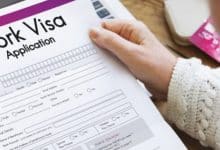UK Permanent Residence Permit 2024
A Guide On Becoming A Permanent Residence In The United Kingdom
UK Permanent Residence Permit is mostly sought after by aspirants who intend to immigrate to the UK. If you’ve been a resident of the UK for a significant amount of time, permanent residence is an option to full citizenship. What it is and how to get it are described here.
UK Permanent Residence Permit
You’ll be happy to know that the UK accepts applications for permanent residency from foreign nationals who meet specific requirements if you want to settle down there. Additionally, you might use this as a stepping stone toward gaining UK citizenship or even as a substitute for it.
Continue reading to learn more about how to obtain a UK permanent residence permit.
Permanent Residence In The UK
If you meet the prerequisites, you can apply for permanent residency in the UK. Indefinite leave to remain (ILR), often known as permanent settlement, entitles its possessor to a settlement licence that enables unlimited travel to and from the UK.
Both temporary and UK permanent residence permit are handled by the UK Home Office Visas and Immigration Service.
The UK only offers one type of settlement permit, in contrast to numerous other nations in Europe. However, as we will discuss later, there are several ways to become a permanent resident of the UK.
Similarities Between UK Citizenship and Permanent Residence
Permanent residency and British citizenship share a lot of similarities. These consist of:
- The rights to live, work, study, and launch a business in the UK
- Access to social security in the UK
- Full access to public healthcare through the NHS
- The freedom to leave the UK and come back whenever you want
- The ability to obtain a mortgage or purchase property in the UK
Additionally, there are parallels in terms of prerequisites. In reality, having ILR status for at least a year is one of the conditions for the majority of UK citizenship applications. This means that before you can apply for citizenship, you must fulfill the requirements for permanent residency.
Distinction Between UK Citizenship and Permanent Residence
However, there are also a number of distinctions in terms of both rights and obligations. For instance, permanent residents do not have access to the following privileges that UK citizens do:
- UK passport
- Voting rights in all elections, whether municipal and national
- The right to run for any post in government
- Freedom to move abroad at any time; in contrast, permanent residents are only allowed to leave the UK for up to two years before their residency rights may be impaired.
- Any children born outside of the UK will have more citizenship rights.
How Do I Become A Citizen Of The UK?
Naturally, obtaining full UK citizenship also entails fulfilling additional conditions. Before applying for citizenship, you typically need to have lived in the UK for a year with settled status. It takes five years to obtain a UK permanent residence permit, hence it usually takes six years to obtain citizenship.
Read More On Easy Paths to Immigrate To The UK
The procedure of obtaining citizenship is significantly more time-consuming and expensive. Additionally, if your country of origin forbids dual citizenship, you will have to renounce your current citizenship in order to become a citizen of the UK.
Requirements for UK Permanent Residence
Depending on the method of application, the requirements for ILR in the UK varies a little. Generally speaking, they include:
- Five years of continuous residence in the UK. Sometimes this is shortened (to two or three years for people residing in the UK on specific employment visa or family visas, for instance) or lengthened (for those applying under the 10-year residency route)
- Evidence of adequate English language proficiency
- Having passed the UK Life Test
- Evidence confirming you continue to satisfy the conditions of your UK visa, such as proof that you are still married if you are on a spouse family visa or that you meet the minimum wage requirements for skilled work visas.
It’s noteworthy that some application categories, such as refugees and those requesting established status under the EU Settlement Scheme, are exempt from the English language proficiency requirements and the Life in the UK Test.
How To Apply For Permanent Residence
For UK permanent residency, you can apply online. Generally speaking, you have up to 28 days to submit your application before you meet the residency qualifying criterion.
Regardless of the application path you choose, you will normally need to submit the following information/documents:
- Valid photo ID such as your passport
- Your existing UK residence permit, usually a Biometric Residence Permit (BRP) if issued within the last 10 years
- Proof that you meet any English language requirements
- Life in the UK Test results
- Documents demonstrating your eligibility for the application method you are using, such as a marriage certificate or bank statements demonstrating your minimal annual earnings.
The processing of applications may take up to six months. You must schedule an appointment at a UK Visa and Citizenship Application Service (UKVAS) in order to submit your application and supply your biometric data (fingerprints and a photo) for your settlement permit.
Applying for Permanent Residence On A UK Work Visa
If you have resided in the UK for five years on a work-related visa, you may apply for permanent residence. On some business and entrepreneur visas, this is, however, cut down to two or three years. Depending on which of the following visas you possess, the specific procedure and requirements will vary:
Work Related Visas
- Tier 2 visa (Skilled Worker, International Sportsperson, or Minister of Religion)
- Business entrepreneur, investor, or global talent visa
- Innovator visa
- Overseas business representative visa
- Turkish worker or businessperson visa
- Domestic worker visa
- Private servant in a diplomatic household visa
How To Apply For UK Skilled Work Visa
Permanent Residence On A UK Family Visa
If you entered the country on a family visa to visit a relative who is either a British citizen or a permanent resident, you may be eligible to apply for ILR. Usually, the residency requirement is for five years, but depending on your situation, it may be shorter or longer.
If you are one of the following relatives of a UK citizen or established resident, you may apply through this route:
- Spouse or partner
- Child
- Parent
- Dependant adult relative
If your partner passes away or if the relationship terminated as a result of abuse or domestic violence, you can also apply under the family visa route.
Applying for Permanent Residence On The 10-year Residency Route
If you have one of the following, you may use this method to apply for permanent residence in the UK:
- 10 years of continuous lawful residence in the UK, regardless of the type of visa you have
- Have lived in the UK for ten years and been granted a visa based on your personal life.
Permanent Residency For An EU Citizen Already Living in the UK
The UK’s post-Brexit residence program for citizens of the EU and EFTA is called the EU Settlement Scheme. In accordance with the plan, those residing in the UK might apply for established status (if they had been there for more than five years) or pre-settled status (if they had been there for shorter time) (if they have lived in the country for over five years). ILR and settled status are same. Once they have been residing in the UK for five years, individuals with pre-settled status can apply to change to a settled status.
Applying For UK Permanent Residence Permit As A Refugee
After five years, you may apply for ILR if you were given refugee status or humanitarian protection in the UK. Additionally, you are not required to pass the Life in the UK Test or meet the English language or wage requirements.
Permanent Residence Through The Windrush Scheme
This program is for people who have made their home in the UK but lack official documents to prove it. Who is eligible for the Windrush Scheme?
- Commonwealth citizens who arrived in the UK before to 1973
- Children of Commonwealth citizens who immigrated to the United Kingdom before 1973
- Nationals of any nation who arrived in the UK before December 31, 1988, and are currently residents of the nation
- People applying through the Windrush Scheme are excused from demonstrating their English language proficiency or taking the Life in the UK Test, just as refugees and EU Settlement Scheme applicants.
Applying For Residency As A Member Of The UK Armed Forces
If you have served in the UK armed forces for at least four years and are ready to leave, you may apply for permanent residency in the country. Although you can apply up to ten weeks before your service is up, you must do it within two years of your departure. The minimum four-year requirement is waived, if you are medically released from the military as a result of your service.
Permanent Residence On A UK Ancestry Visa
If you have held a UK Ancestry visa for at least five continuous years, you may apply for permanent residence in the UK. In addition to completing the basic standards, you must demonstrate that you are still a Commonwealth citizen and have the funds to sustain yourself and any dependents.
Costs of UK Permanent Residency Application
A permanent residency application in the UK costs £2,389 in total. You also need to pay about £20 BRP fee in addition to this.
In the UK, applications for permanent residency are cost-free if you are applying:
- By means of the EU Settlement Scheme
- Through the Windrush Scheme
- Being under humanitarian protection or as a refugee in the UK
- If you can demonstrate that you are unable to pay the application fee or do not have a place to live and
- because of domestic violence or abuse
Renewal Fee For UK Permanent Residency
Interestingly, you don’t have to worry about renewing your permanent residency in the UK because it never expires. Your BRP is only valid for ten years at most, therefore you should apply for a new one when it does.
Your biometric information must be resubmitted for this, which presently costs £20. The right to stay in the UK is unaffected if your BRP expires. However, it might become more challenging to demonstrate your status as a settled resident to various UK authorities.
Settlement In The UK For Family Members
Typically, you can list your spouse and any minor children as dependents on your application. However, there are differences in the requirements and procedures for the various application options, so you should consult the UK government website for more information. If your dependents are still living with you and were younger than 18 when you first listed them as such on your UK visa application, you may include children who are older than 18.
Read More about UK Spousal Visa
Leave To Remain For Stateless Persons Living In The UK
You are eligible to apply for a five-year leave to remain in the UK as a stateless person if you:
- possess no nationality in any country
- are not eligible to apply for permanent residency in any nation
- presently residing in the UK
- have not requested asylum because you do not fear being persecuted if you return to the country where you lived before coming to the UK
How To Apply
Applicants must apply online and submit the following information:
- a valid ID and any necessary travel documents, such as visas
- any documentation you may have, such as a letter from the UK Home Office, that demonstrates your immigration status in the country
- evidence that demonstrates your statelessness
- documents demonstrating your previous residence before moving to the UK
You can list your partner and any minor children as dependents on the free application. You will be qualified to apply for settlement in the UK at the conclusion of the five-year period if your application is approved and you meet all requirements.
Losing Your Settlement Rights In The UK
If you leave the UK for two years or longer without returning, you will often lose your status as a permanent resident. For up to five years, EU/EFTA nationals possessing settled status under the EU Settlement Scheme may stay abroad. As a returning resident, you might be able to reapply for ILR at a fee of £516.
Additional causes listed below could result in you losing your right to permanent residence in the UK:
- If you are the target of a criminal deportation order
- If the UK Home Office learns that you got your ILR through the use of forged or otherwise false documents
How To Appeal A Rejected Permanent Residence Application
You may file an appeal with the First-tier Tribunal (Immigration and Asylum Chamber) if you believe that your application for ILR was wrongfully denied.
Affected applicant might be able to submit a request for reconsideration of the decision if you are not qualified for a complete appeal for whatever reason.
You can submit a complaint online regarding the services offered by the UK visa and immigration authorities. In most cases, a response will be given to you within 20 working days, or 12 weeks if the complaint is deemed significant
If you’re not satisfied with the result, you can request a review, which could take an additional 20 days. If you’re still not pleased after this, you can refer the issue to the Parliamentary and Health Service Ombudsman.
However, it is important to keep in mind that contesting a visa decision can occasionally be an expensive and drawn-out process. Because of this, it is advisable to seek out free counsel before moving forward.
In order not to miss out on prompt updates from careerinfos.com, enter your email address below and hit the subscribe button beneath.
A confirmation link will be sent to your inbox or check your spam mails if its not in your inbox. Make sure you click the link to confirm your subscription in order not to miss any updates from this blog. All comments (related to the post above) should be dropped via the comment section below.








